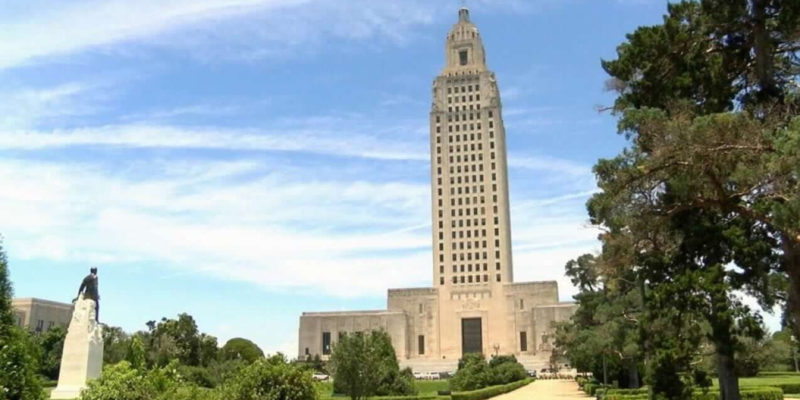One up, one down for fiscal reform in Louisiana from this past weekend’s election – and in a manner that defied expectations.
Amendment #1 would have centralized state and local sales tax collection by dozens of entities into one, although that new unit itself would have been a committee representing state and local government interests, with future legislation and rule-making further defining the process. That lost by around 15,000 votes.
While a few interest groups stumped for the item’s passage, arguing that the current decentralized system unique among the states discouraged economic development by the complexity involved, no organized opposition arose. Instead, a number of parish government officials behind the scenes discouraged support, contending local governments would find their revenue streams disrupted, with this fear magnified by the nebulous nature of the unestablished regulatory regime.
As such, opposition might have been more likely in smaller jurisdictions where local governments cast a longer shadow proportionally over economic activity. And as it was, most parishes voted against the amendment with most supporting it among the higher populated. Only five of the 40 least-populated parishes supported it, while of the 24 most-populated a third supported it, with almost all of those in support among the top 12.
Given the top 12 represent over 60 percent of the state’s population, that could have been enough to succeed. Additionally, it won in all but one of the top six and in four cases by margins in the thousands of votes, where the losses among those ranked 7-12 were smaller.
However, Orleans Parish sunk the entire measure. The state’s third-highest populated parish, whose turnout on this doubled the state’s since it piggybacked on city/parish contests, ended up with about 16,000 more votes against. Certainly New Orleans’ official objection to it, alleging rather unrealistically that the new arrangement could have sales tax revenues doled out for political reasons, influenced some voters there. Absent that, likely the vote there would have mirrored the only other parish in its group that voted against – Calcasieu, by just a few dozen – and that would have allowed the matter to squeak through.
Regardless, centralization will come in one form or another, as the U.S. Supreme Court’s South Dakota v. Wayfair decision has made Louisiana’s current system constitutionally suspect and ripe for striking down. Sooner rather than later would have been preferable.
Amendment #2 will change Louisiana’s tax code, capping maximum income tax rates and abolishing the federal income tax deduction. Enabling legislation reduces rates and ameliorates the franchise tax to produce a small net tax cut, with the possibility of further rate reductions in the future.
Advertisement
Especially that last part worried the far left, who would rather see fatter government than fatter take-home pay for lower-income households, and despite that almost nobody who didn’t itemize deductions would not receive a tax cut including these households. Committed as such to trying to keep government big, such special interests brought organized opposition to the measure.
This theoretically meant parishes where Democrats did well in elections – principally Orleans, East Baton Rouge, and Caddo – would provide the critical reservoir of votes to defeat it, with Orleans having special relevance with much higher turnout. Perhaps secondarily, as Democrats predominate among black voters, parishes with larger black populations would vote against it.
Neither trend materialized on election day. East Baton Rouge and Caddo solidly went for it, while Orleans voters barely turned it down. Almost three-quarters of the top 24 parishes voted in favor, even as almost half of the others went against it. That essentially ended up at the 33,000 or so margin of victory, as the bottom 40 resulted almost in parity.
Further, race didn’t appear to have much to do with the outcome. Some majority black parishes such as Madison and Morehouse voted in favor, while some with a particular high proportion of whites like Grant and Winn voted against. Big white majority West Carroll voted against, while next-door neighbor East Carroll with a large black majority voted in favor.
In other words, despite the pleadings of the Louisiana Budget Projects of the world, voters tended to vote in their own self-interests, and that’s why this item succeeded.
Advertisement
Advertisement

